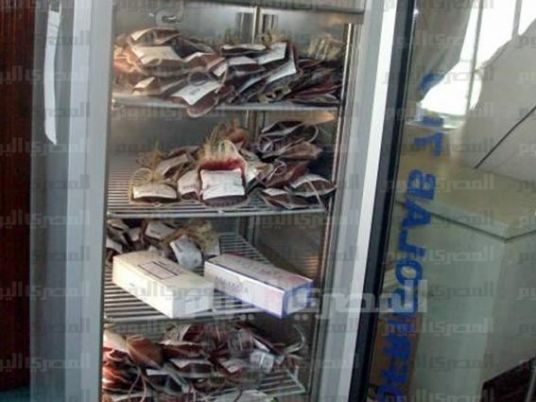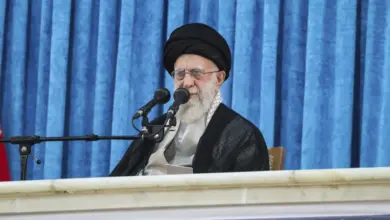
A beam of light in the vicious battle against breaking the cycle between poverty and inefficient public health services in Egypt is now on the horizon.
In an unprecedented move, the National Health Insurance Organization (HIO) announced provision of oral iron chelation drugs to treat patients of thalassemia of all ages during the first International Conference for Pediatric Hematology held on Thursday.
Thalassemia is an inherited blood disorder characterized by defective production of hemoglobin, the iron-rich protein found in red blood cells that in charge of delivering oxygen to the whole body. The disorder destroys red blood cells, which leads to anemia with varying levels of severity.
In light of the high prevalence of the disease in Egypt, estimated at about 9 percent and one of the highest rates worldwide, HIO has been gearing up to eradicate thalassemia in the near future.
The total number of thalassemia cases is 3,329, however the cost of treatment poses an enormous burden on the poor’s shoulders reaching about LE19 million annually.
“We strive to provide comprehensive diagnostic and treatment services so patients can lead productive normal lives,” Naglaa Shaheen, a consultant of pediatric genetic hematology and HIO spokesperson, said.
Thalaessimia is a life-long condition requiring regular blood transfusion, which led previously to the refusal of subcutaneous injections by most patients.
However, Amal al-Beshlawy, Professor of Hematology and Pediatrics at Abul Rish University Hospital and Head of the Egyptian Society for Thalassemia, pointed out that the oral iron chelation tablets play a safer substitution role than subcutaneous injections.
“These drugs help reduce iron levels, and come in the form of pills taken twice daily. Before the advent of these drugs, many patients were reluctant to receive injections over eight hours daily, which resulted in having high rates of life-threatening cardiac and liver deterioration due to iron accumulation in blood.”
Despite the fact that if both parents are carriers they can pass the disease to their kids, al-Beshlawy pointed out that this disease could still be a choice.
“Fetal testing is crucial, so in case parents discovered that the baby carries genetic abnormal disease, an abortion could be carried out, but only during the first 12 weeks of pregnancy according to Islamic law (Sharia),” she said adding that these tests are available at the Abul Rish Hospital.
However, al-Beshlawy put a strong emphasis on the importance of prevention of the disease as well as developing a root-finding solution tactic to avoid going through the sufferings of treatment journey.
“The imposition of pre-marital medical testing is a must as carriers of the disease do not show any apparent symptoms,” she said.
Additionally, in light of the increasingly number of cases reaching 1,500 new cases annually, al-Beshlawy called for adopting awareness-raising approach through media campaigns and pupils’ curriculum in a bid to limit its growing spread.
Aly Hegazy, head of HIO, listed the HIO’s follow-up services, covering the most important body organs affected by the disease such as the heart, liver, bones and glands.
In addition, bone marrow transplants, which cost up to LE75,000 per patient and makes the latest treatments for genetic or acquired bleeding disease patients – such as hemophilia – available, the costs of which range from LE7,000 to LE15,000 per patient per month.
“We (HIO) also embrace the treatment of patients lacking blood clotting factors and provide them with physical therapy via the largest pediatric hematology treatment centers affiliated with the organization,” Hagzy concluded.
With the participation of renowned international hematology experts and 700 local experts, the first International Conference for Pediatric Hematology addressed other blood disorders as well as the milestones achieved in terms of patient support by HIO over the past 50 years.




